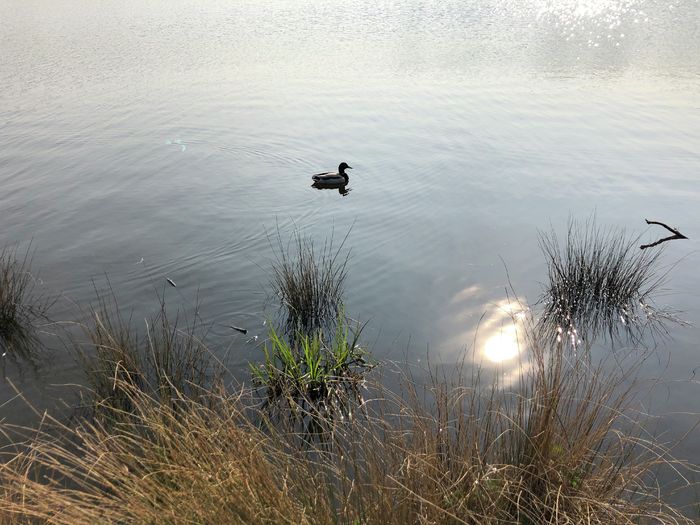Finding light in lockdown
Nadya Miryanova discusses the difficulties of keeping a sense of perspective in lockdown and how the metaphor of light has helped her to cope.
Content Note: This article contains detailed discussion of coronavirus and lockdown.
Within the space of a few months, COVID-19 went from being contained in Wuhan to causing a pandemic with devastating consequences. The buzzword of the moment is “unprecedented”- the virus has had an unforeseen impact on all aspects of society, from the personal to the political.
As we watch the chaos unravel from our television screens, it feels like we’re living in a dystopian novel - the government surveillance in 1984 and the self-isolation in The Handmaid’s Tale spring to mind. I never thought the day would come when I genuinely miss Brexit - a topic that now seems otherworldly.
During quarantine, I’ve found that time passes unnoticed and I’m halfway through the day without fully knowing where it’s gone. I’ve visited the same park too many times to count, have frequented the fridge more times than is socially acceptable, and have watched all the YouTube videos of raccoons known to mankind - I now even understand why dogs get so excited when the postman comes!
I’m actually grateful that term has started, since it’s helped me to establish some form of routine. Though it’s been stressful navigating the mazes that are Zoom and Microsoft Teams (whilst begging my WiFi not to desert my computer), I’ve enjoyed the contact I’ve had with everyone from University. It’s a welcome distraction and a refreshing reminder that lockdown is a collective experience.
As students, we’re used to life in the fast lane, to balancing social interaction with academics and extracurriculars. Although Cambridge is sometimes overwhelming, without it all, it suddenly feels empty.
However, it’s still very easy to feel isolated when we’re forced to see the same four walls everyday and remain stuck with a bunch of unanswerable questions for company. When will the virus stop spreading? When will I see my friends again?
As students, we’re used to life in the fast lane, to balancing social interaction with academics and extracurriculars. Although Cambridge is sometimes overwhelming, without it all, it suddenly feels empty. For me, lockdown has felt like being trapped in a long, dark oppressive tunnel that has no end. I look back and can’t remember where it began, I look forward and can’t see a clear exit.
But strangely it’s this metaphor that that has also helped me to cope. I’ve recognised that others are stuck in the tunnel too and that we all lack direction and foresight. It only takes one person to switch on a torch by acting positively and the tunnel becomes a little lighter. I like to remember the frontline workers, who steer us towards the light at the end, putting their own lives at risk by helping those in need. People notice these patches of light and follow their example. Gradually, the tunnel becomes bathed in these specks of light.
I have found that it’s these spots of light that make all the difference. Whether it's a virtual pub quiz with friends or scrolling through memes (we’ve all been there), it’s important to remember to do things that bring you comfort. Ironically, I’ve tried to see quarantine as an opportunity for reconnection, recovery and personal growth. I’ve noticed so many wholesome online initiatives to get involved in, ranging from free yoga classes to reading groups. I’ve even taken tours of Botanical gardens and watched National Theatre productions under my own roof! At the end of the day, we’re not necessarily restricted at home, it’s where we are safest, and it opens a different window of opportunity for us.
Although it seems like we’re stuck in an everlasting Groundhog Day, it’s important to remember that this situation is temporary, and we shouldn’t lose sight of what brings us light. We’ll appreciate life more this way and recognise how lucky we are, as many continue to fight for their lives and the lives of others.
If there’s one thing that we can learn from this crisis, it’s that there’s comfort in having a virtual community, a space where friends, family and carers can gather, creating a shining light that can see us through until the end of the tunnel is in sight.
 Features / Should I stay or should I go? Cambridge students and alumni reflect on how their memories stay with them15 December 2025
Features / Should I stay or should I go? Cambridge students and alumni reflect on how their memories stay with them15 December 2025 News / Cambridge study finds students learn better with notes than AI13 December 2025
News / Cambridge study finds students learn better with notes than AI13 December 2025 Comment / The magic of an eight-week term15 December 2025
Comment / The magic of an eight-week term15 December 2025 News / News In Brief: Michaelmas marriages, monogamous mammals, and messaging manipulation15 December 2025
News / News In Brief: Michaelmas marriages, monogamous mammals, and messaging manipulation15 December 2025 News / Uni Scout and Guide Club affirms trans inclusion 12 December 2025
News / Uni Scout and Guide Club affirms trans inclusion 12 December 2025










